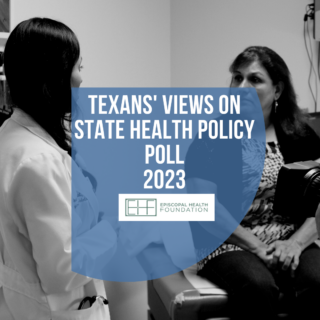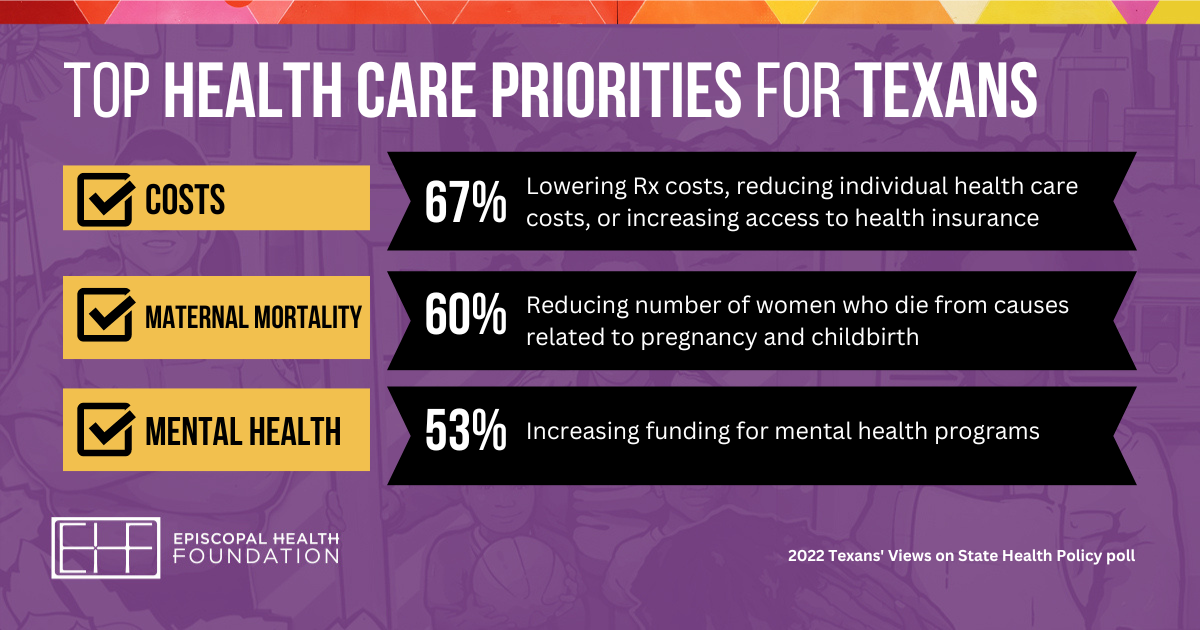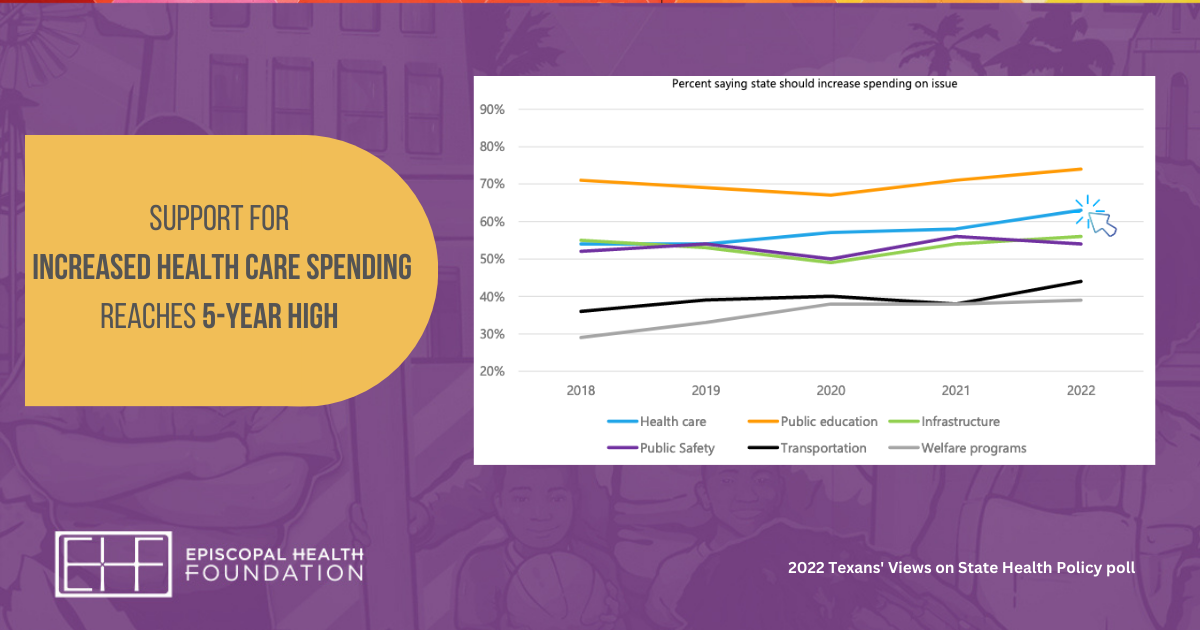As the Texas legislature gets to work in Austin this session, Texans say reducing health care costs, addressing maternal health, and increasing funding for mental health programs should be their top health care priorities. Those are just some of the results of a new statewide Episcopal Health Foundation (EHF) poll on state health policy in Texas.
The annual tracking survey finds that lowering various costs associated with health care ranked as a top priority for most Texans. Researchers found more than two-thirds of Texans (67%) say reducing health-related costs, increasing access to affordable health insurance, or lowering prescription prices should be a top health care priority for the state.
“Year after year, Texans tell us that they’re missing out on preventive check-ups, cancer screenings, and getting help to manage chronic conditions like diabetes and high blood pressure — all because of cost,” says Dr. Ann Barnes, EHF’s president and CEO. “Lack of access to affordable care has direct and indirect impact on health outcomes and these numbers show Texans are looking to state leaders for help.”
EHF’s poll shows that Texans believe reducing the number of women who die from causes related to pregnancy and childbirth should also be a top health care priority for the state. Six in 10 Texans (60%) said addressing maternal mortality should be the top health care concern. Researchers also found that around half of Texans (49%) say increased access to family planning and contraception services should be a prime health care priority for lawmakers.
More than half of Texans surveyed (53%) say increased funding for mental health programs should be the state’s most pressing health care matter. Researchers discovered that more than a quarter of Texans (27%) say they or someone in their household has had problems getting mental health care because of cost. That’s the highest percentage reported in the five-year history of EHF’s poll. Uninsured people (41%), low-income families (36%), and young adults (31%) were more likely to say they had difficulty getting mental health care because they couldn’t afford it.
“By and large, most communities lack an adequate supply of mental health professionals and services to meet the need for care,” Barnes said. “After COVID, there’s rising demand for mental health services. A public health approach to implementing mental health care and creating prevention strategies can help Texas weather upheaval and uncertainty when the next crisis comes.”
When asked about issues that should receive more funding by the state legislature, almost two-thirds of Texans (63%) say lawmakers should increase spending for health care programs. That’s the highest percentage in five years of EHF’s polling. Only public education (74%) ranked higher on the list of issues that Texans say should get increased state funding.
Researchers found that a large majority of Texans (72%) support Medicaid expansion to provide health insurance to potentially 1 million+ low-income Texans who are uninsured. In addition, more than two-thirds (65%) say the state government is not doing enough to make sure low-income adults get the health care they need.
Methodology
SSRS conducted the 2022 Texas Health Tracking Survey on behalf of Episcopal Health Foundation from September 27 through October 31, 2022. Similar studies have been fielded on behalf of EHF since 2018. The 2022 Texas Health Policy Survey, was conducted online and by telephone with a representative
sample of 1,201 Texas adults (age 18 or older). Interviews were administered in English (n=1,102) and Spanish (n=99). The margin of sampling error for this study is +/- 3 percentage points for results based on the total sample.


